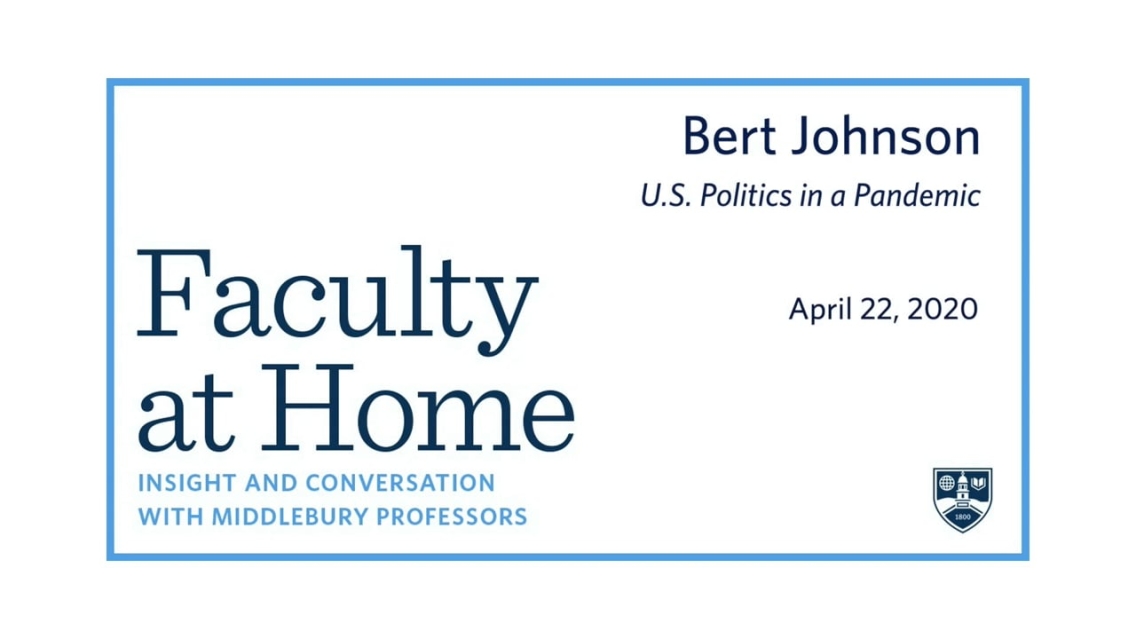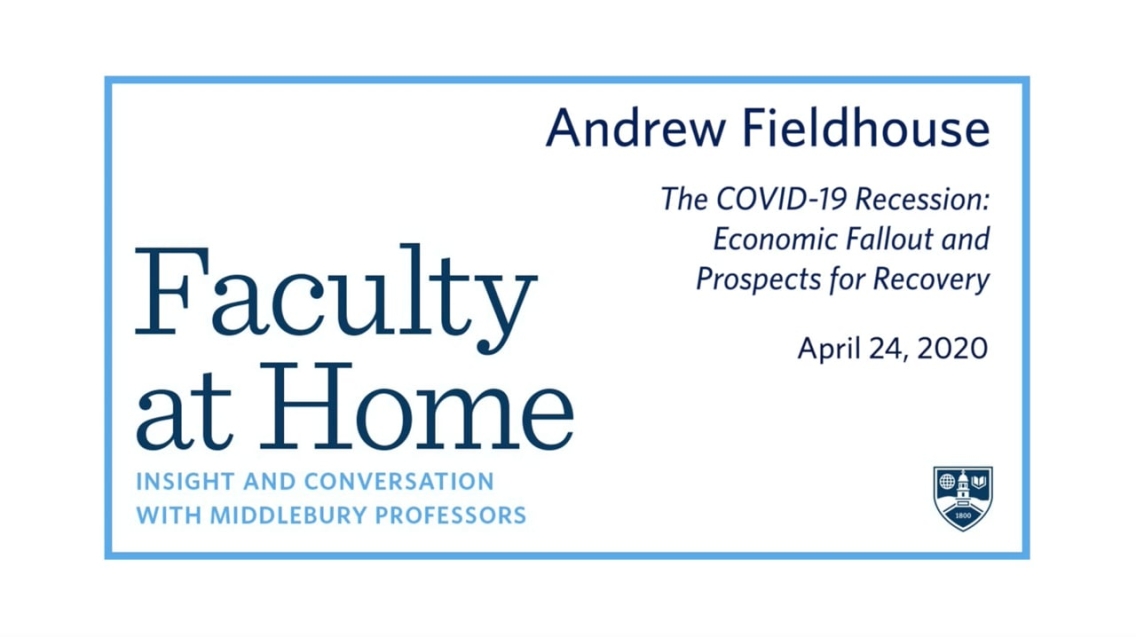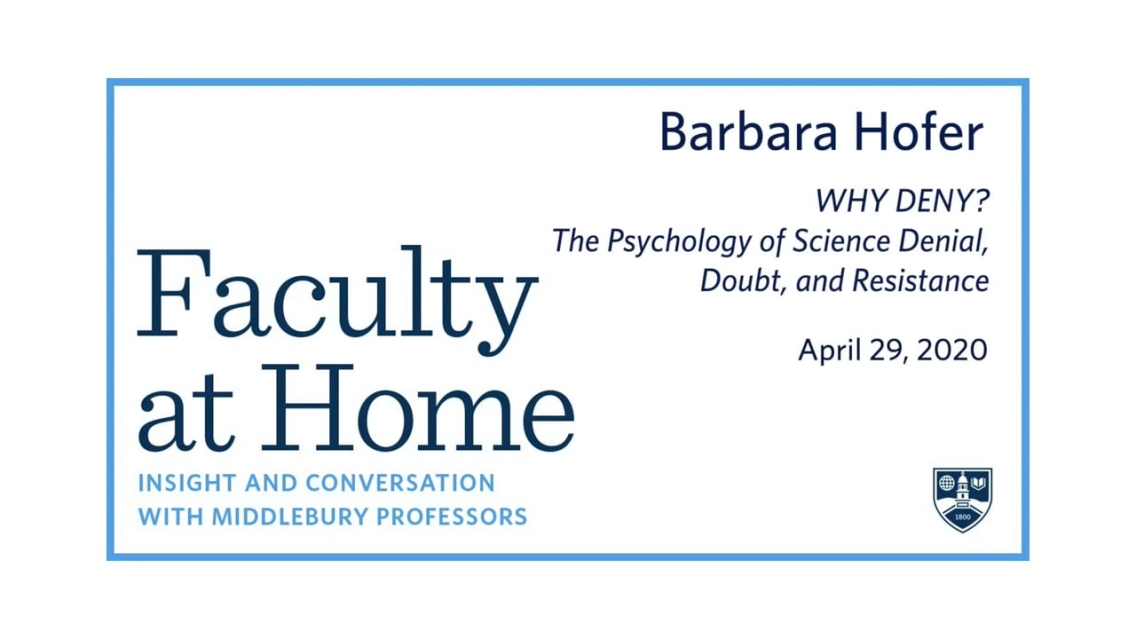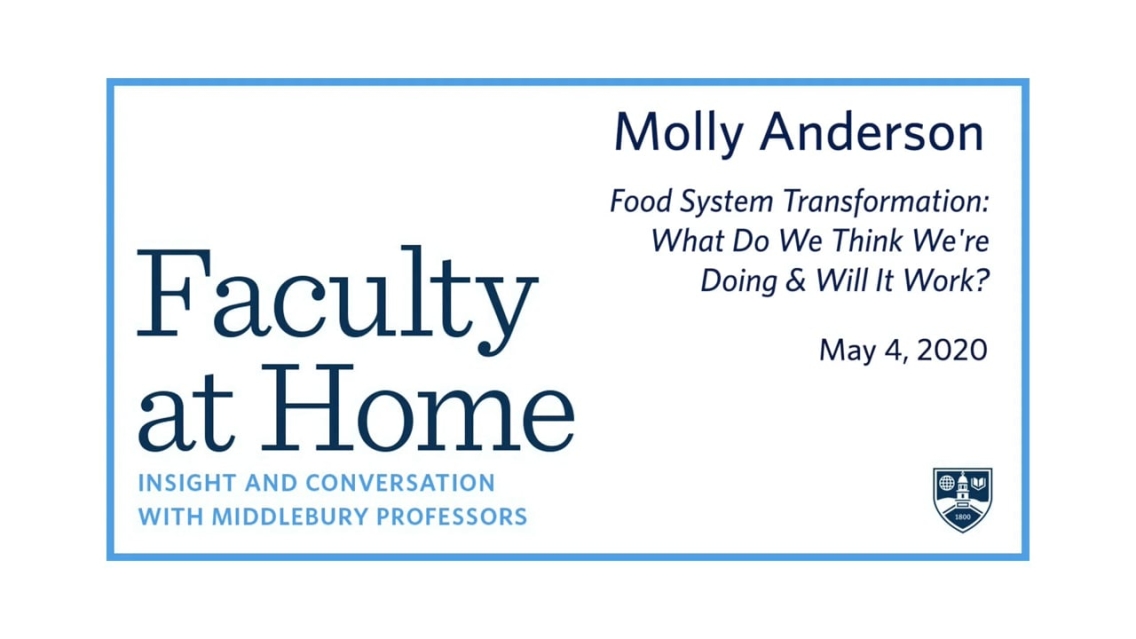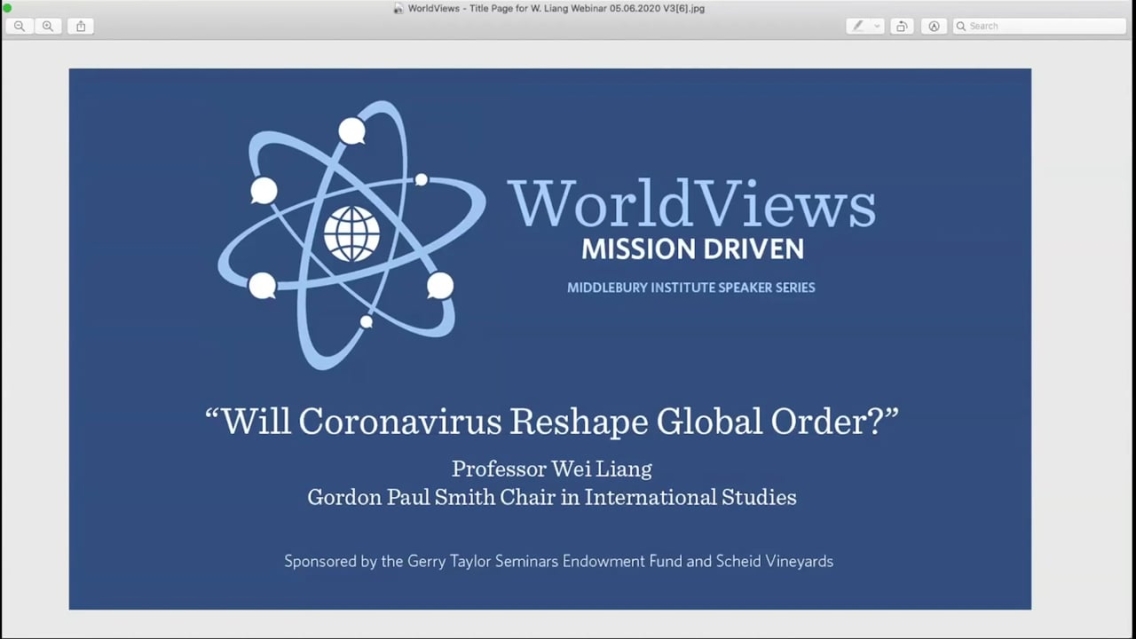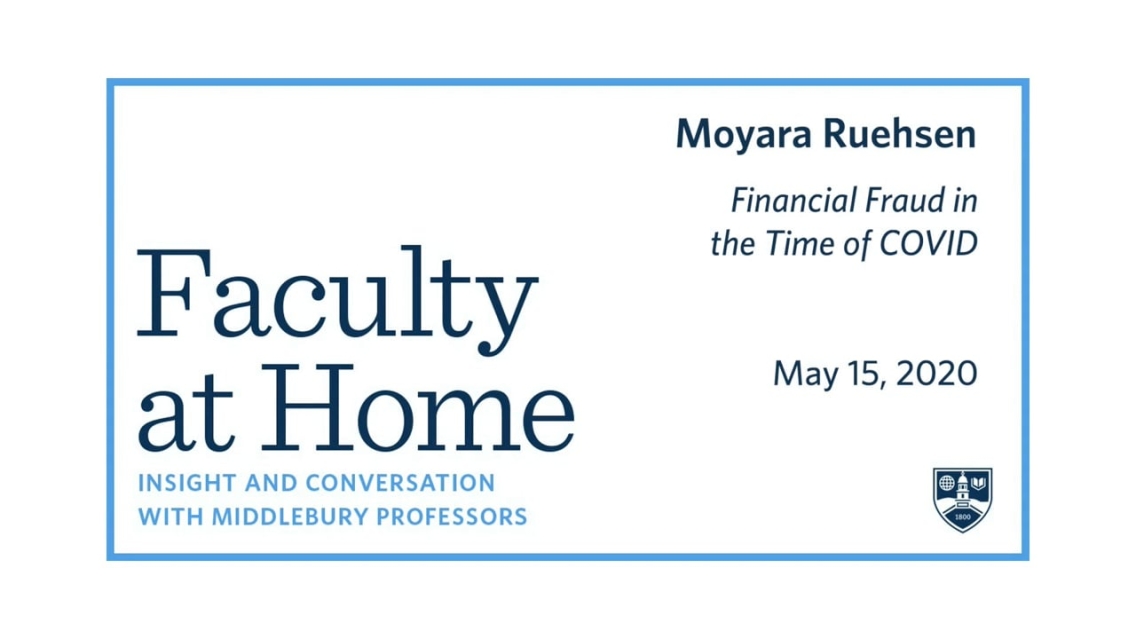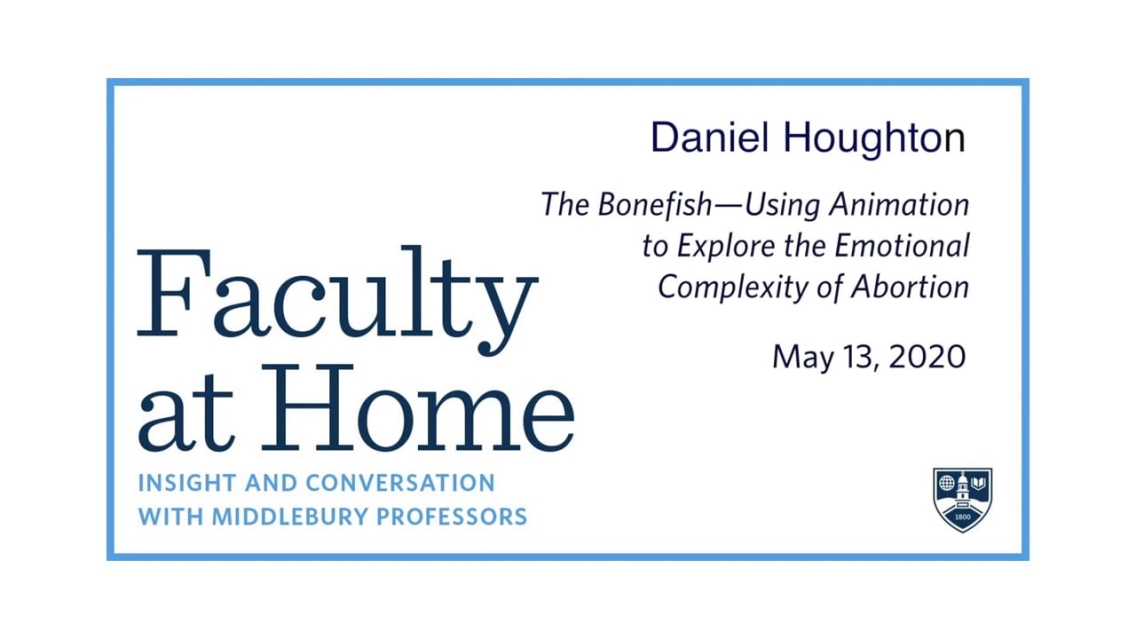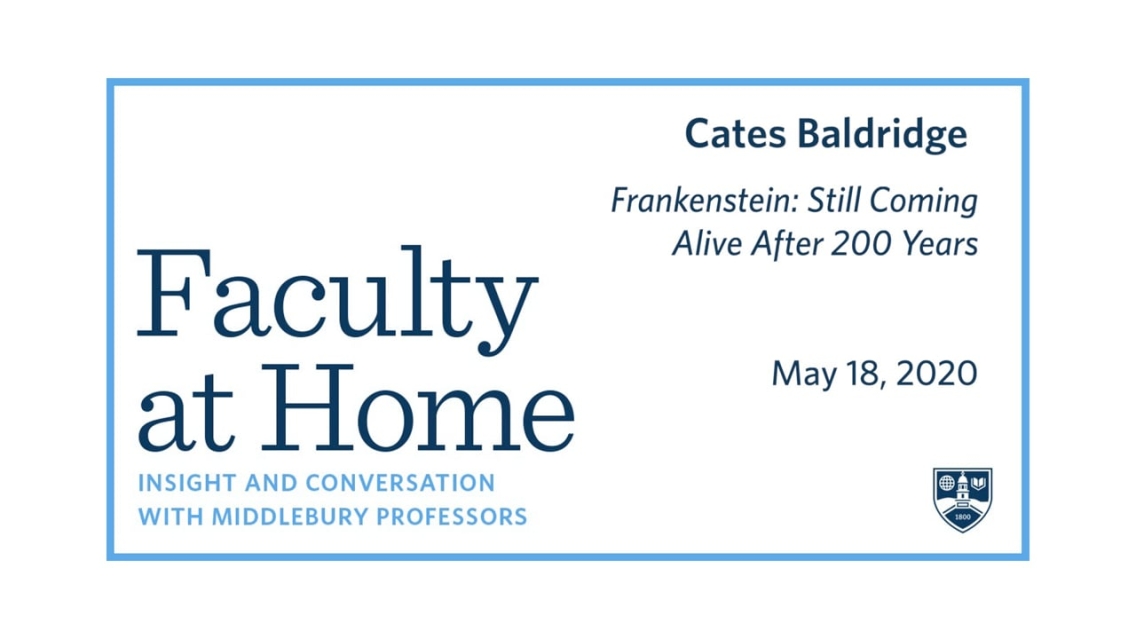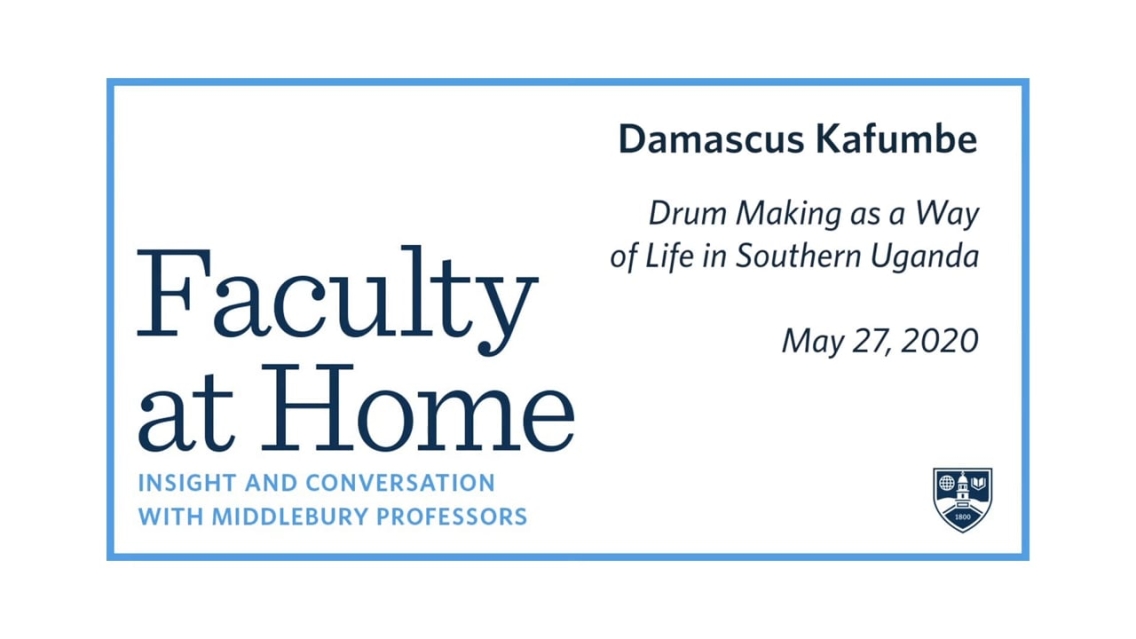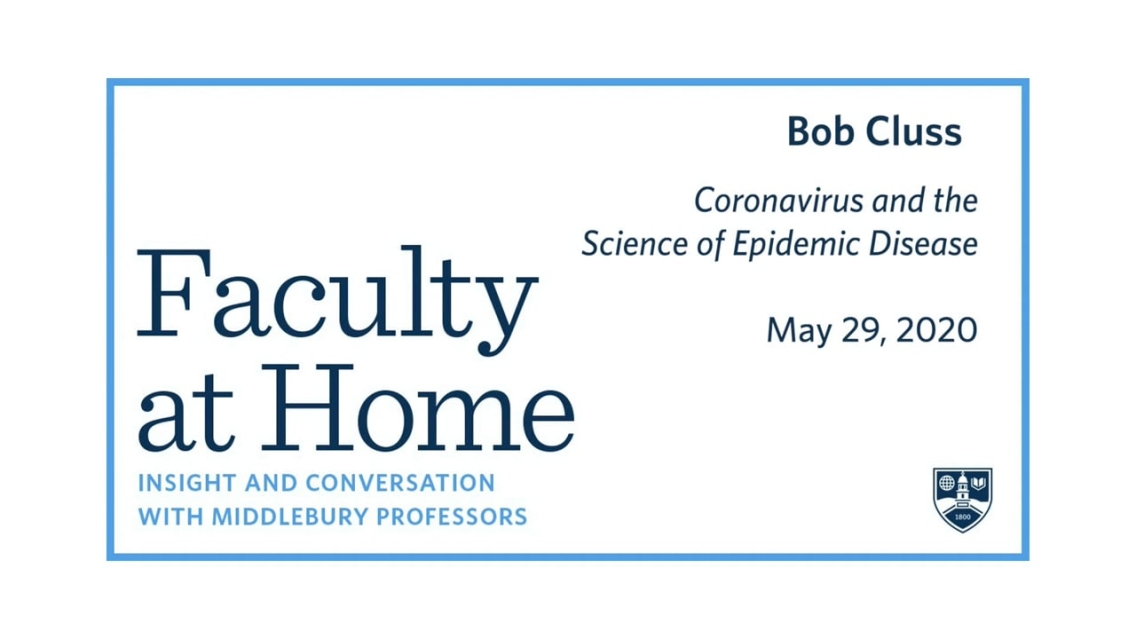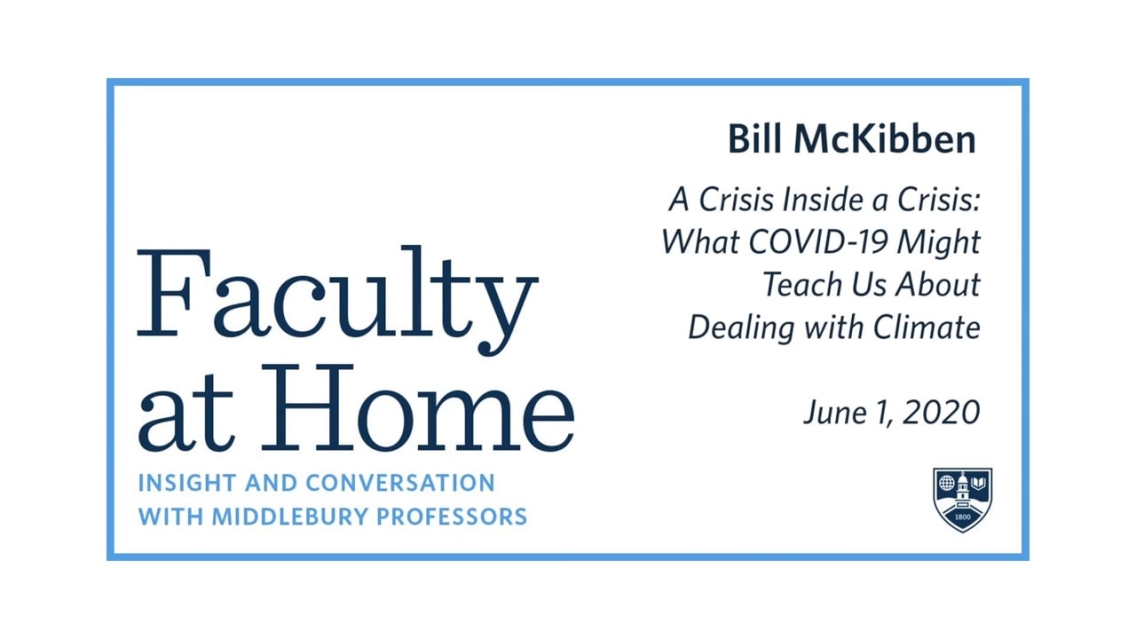Spring 2020 Recorded Series
The following Faculty at Home webinars took place in spring 2020. Recordings of these webinars are posted below.
U.S. Politics in a Pandemic
The COVID-19 crisis prompts two related questions for U.S. politics: First, has our system of government performed effectively in the face of a sudden disaster? And second, what will be the consequences of the COVID-19 pandemic for elections in November and beyond? Although definitive answers to these questions will only come over time, Professor Johnson will offer some preliminary thoughts on these topics and provide context from the perspective of a political scientist.
Read Presentation Slides
The Covid-19 Recession: Economic Fallout and Prospects for Recovery
COVID-19 is first and foremost a public health crisis. The economic fallout from the virus is also staggering, and our economic policy decisions could ameliorate the degree of hardship or substantially impede our eventual recovery. Macroeconomist Andrew Fieldhouse discusses the COVID-19 recession in the United States, recent policy responses, prospects for recovery, and the risks ahead.
Read Presentation Slides
WHY DENY? The Psychology of Science Denial, Doubt, and Resistance
How do individuals decide whether to vaccinate their children, accept human causes of climate change, or practice social distancing during a pandemic? Democracies depend on educated citizens who can make informed decisions for the benefit of their health and wellbeing, their communities, nations, and planet. Understanding key psychological explanations for science denial and resistance can help provide a means for improving scientific literacy and understanding – critically important at a time when denial has become deadly.
Food System Transformation: What Do We Think We're Doing & Will It Work?
Calls to transform our food system are heard from every quarter now, especially given the connections between industrial agriculture and emergent infectious diseases. But what kinds of transformation are needed and how will they happen? Transformation to greater sustainability is essential for our own health and the health of ecosystems, but we can only accomplish this if we understand and deal with the current forms of power in the food system.
Read Presentation Slides
Will Coronavirus Reshape Global Order
The pandemic has and will continue to profoundly impact world politics and the economy. Ideas and policies developed over decades and the competence of national governments and international institutions have been shaken and tested. Join Professor Liang as she discusses what may be permanent shifts in how people (and nations) view sovereignty, freedom, democracy, market, and globalization.
Financial Fraud in the Time of COVID
The COVID-19 pandemic has created numerous opportunities for criminal actors—cybercriminals using the pandemic as a ruse for their spearphishing campaigns, fraudsters setting up fake charities or taking advantage of the desperate scramble to acquire medical equipment and protective gear, or criminals using the new state of disorder to move their money with less risk of detection. Bad actors thrive in a state of chaos. Professor Ruehsen will first explain what you can do to protect yourself and then discuss what financial services firms can do to detect this criminal behavior.
Spring 2020 Recorded Series
The Bonefish—Using Animation to Explore the Emotional Complexity of Abortion
How might the visual medium of animation be used to address the complex topic of abortion? When the current national political struggle forces an over simplification of a complex topic, and the ferocity of the debate encourages participants to fully embrace one side or another in the name of political efficacy, something is lost. The director and the two leading undergraduate collaborators, Kaitlynd Collins ‘19 and Lily Shale ‘20, consider ways of inviting new participants to engage in a topic that is so often shrouded in silence or simplified into fighting terms.
Frankenstein: Still Coming Alive After 200 Years
For 200 years, Mary Shelley’s Frankenstein has proven itself a shape-shifting and always-relevant text, providing generations of readers with an allegory for human psychology, class relations, gendered identity, the consequences of colonialism, and racial conflict. Today, it might even have something to say about our struggles with a global pandemic.
Drum Making as a Way of Life in Southern Uganda
The village of Mpambire in southern Uganda is the epicenter of a vibrant community of instrument makers, musicians, and entrepreneurs. Drum making is a primary source of livelihood, culture, and community. It connects them to their ancestors, both through musical practice and spirit-medium rituals. Drum making also fosters kinship within families, as elders pass down their knowledge of the art. And it promotes cross-cultural and global connections, which sustain Mpambire’s economy and afford drum makers opportunities to gain national and international experience.
Read Presentation Slides
Coronavirus and the Science of Epidemic Disease
How does the coronavirus epidemic compare to others of the recent past? And how are scientists responding to this situation? Professor Cluss will share insights on the latest virus causing worldwide havoc.
A Crisis Inside a Crisis: What COVID-19 Might Teach Us About Dealing with Climate
Environmentalist Bill McKibben says there are no silver linings to a pandemic, but if we’re going to go through this kind of trauma we might as well learn some things. Join him as he shares his sense of what we should be thinking as we come out of quarantine.


